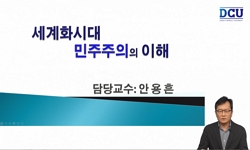While democratization translates labor's suppressed grievances into expectation, neoliberal globalization limits options available to the democratic regime. This kind of contradiction aggravates as the left comes into state power. In Chile, it was und...
http://chineseinput.net/에서 pinyin(병음)방식으로 중국어를 변환할 수 있습니다.
변환된 중국어를 복사하여 사용하시면 됩니다.
- 中文 을 입력하시려면 zhongwen을 입력하시고 space를누르시면됩니다.
- 北京 을 입력하시려면 beijing을 입력하시고 space를 누르시면 됩니다.
https://www.riss.kr/link?id=A82486014
- 저자
- 발행기관
- 학술지명
- 권호사항
-
발행연도
2006
-
작성언어
Korean
-
주제어
democratization ; democratic regime ; Chile ; socialist party ; left government ; labor union ; globalization ; neoliberalism ; labor's dilemma ; flexibilization of labor ; 민주화 ; 민주정권 ; 칠레 ; 사회당 ; 좌파정부 ; 노동조합 ; 세계화 ; 신자유주의 ; 노동운동의 딜레마 ; 노동의 유연화
-
등재정보
KCI등재
-
자료형태
학술저널
- 발행기관 URL
-
수록면
5-42(38쪽)
- 제공처
-
0
상세조회 -
0
다운로드
부가정보
다국어 초록 (Multilingual Abstract)
While democratization translates labor's suppressed grievances into expectation, neoliberal globalization limits options available to the democratic regime. This kind of contradiction aggravates as the left comes into state power. In Chile, it was under the left government when the general strike broke out for the first time since the start of democratization and the radical forces within the labor movement initiated anti-government mobilization, resulting in organizational split. It is the aim of this study to explain labor's dilemma under the left government by analyzing the reason why labor movement engaged in the general strike against the left government and the process how the organized labor got divided.
Contrary to the findings of preceding studies, Chilean workers went through decline in unionization rate and collective contract coverage rate as well as worsening labor conditions including rampant massive dismissals and irregularization of labor force. The ever-accelerating workers' expectation couldn't avoid severe sense of betrayal. Since the source of troubles lie in the economic-labor policies of the left government, workers' discontent came to burst into the general strike.
Labor's outraged struggle, however, fell short of success, and it represents the dilemma which labor faced under the left government. If the labor's struggle entails successful mobilization, it verifies the lack of governing capacity in the left party and brings about socioeconomic instability, which mights ends up with the ascendency of moderate forces inside the Concertacion as well as the strengthening of anti-Concertacion rightist parties. On the other hand, labor's attempt of general strike finds difficulty in mobilization, because unionization rate fell to ground and polarization between unionized regular workers and ununionized irregular workers within the Chilean working class.
목차 (Table of Contents)
- Ⅰ. 문제의 제기
- Ⅱ. 민주정권 시기 노사관계와 노동조합 영향력
- Ⅲ. 민주정권 시기의 노정관계와 노동조합의 딜레마
- Ⅳ. 토론 및 맺음말
- Abstract
- Ⅰ. 문제의 제기
- Ⅱ. 민주정권 시기 노사관계와 노동조합 영향력
- Ⅲ. 민주정권 시기의 노정관계와 노동조합의 딜레마
- Ⅳ. 토론 및 맺음말
- Abstract
- 참고자료
동일학술지(권/호) 다른 논문
-
‘혁명적’ 인디헤니스모(Indigenismo ‘Revolucionario’)의 이념적 성격
- 한국라틴아메리카학회
- 김윤경(Yoon-Kyung Kim)
- 2006
- KCI등재
-
- 한국라틴아메리카학회
- 강경희(Kyeong-Hee Kang)
- 2006
- KCI등재
-
Four Keys to Chilean Culture : Authoritarianism, Legalism, Fatalism and Compadrazgo
- 한국라틴아메리카학회
- Carlos F. Gomez Diaz(까를로스 고메스 디아스)
- 2006
- KCI등재
-
- 한국라틴아메리카학회
- 문남권(Nam-Kwon Mun)
- 2006
- KCI등재





 DBpia
DBpia






